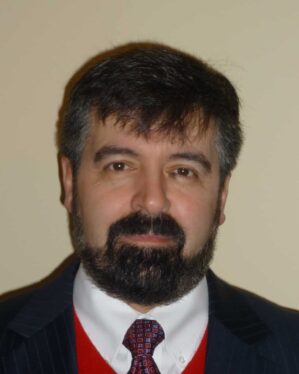Director

Alex G. Basnakian, M.D., Ph.D.
Professor, Department of Pharmacology and Toxicology, Pharmacology DNases Research
Objectives
The nanotoxicology lab will focus on the evaluation of systemic and local toxicity of nanomaterials during their pre-clinical and clinical testing.
Background
Research is a vital component of the development of faculty and students at ASU, and a significant and relevant portion of the research is accomplished through the Arkansas Bioscience Institute.
The nanotoxicology lab will be formed on the basis of the existing DNA Damage and Toxicology Core, created and led by Dr. Basnakian.
The lab will use the core’s equipment, expertise and experience accumulated during the five years of the core’s existence.
The Nanotoxicology laboratory serves as the toxicology core for the UAMS College of Medicine, other colleges at UAMS, and several Arkansas and out-of-state colleges (in total, around 50 users).
The lab will continue the Core’s current collaborations with the UA Little Rock Center for Integrative Nanotechnology Sciences (Alexandru Biris, Ph.D.), University of Arkansas (Robert E. Gawley, Ph.D.), and National Center for Toxicological Research (where Dr. Basnakian worked before 1996).
Accomplishments
The laboratory led by Dr. Basnakian studies enzymes responsible for DNA fragmentation, which is the hallmark and the most accepted quantifiable marker of irreversible cell death.
Dr. Basnakian is also a founder and director of the DNA Damage and Toxicology Core Center at UAMS.
Dr. Basnakian’s research team developed nanoparticle-based anticancer helper-drugs, which carry genes of cytotoxic endonucleases to malignant cancer cells deficient of these enzymes. This makes cancer cells in tumors or metastases sensitive to anticancer drugs.
The DNA Damage and Toxicology Core provide in vitro and in vivo toxicity assessments (including toxicity of nanoparticles) and measurements of toxicants.
Function
- Provide in vitro and in vivo toxicity assessments and measurements of toxicants. In vitro toxicity assessment is based on a variety of cell-, ELISA-, FACS- and colorimetry-based assays.
- Measurement of systemic toxicity using various biochemical markers of organ injuries.
- Measurement of local toxicity using quantitative cytochemistry, immunohistochemistry, nanoparticle visualization and genotoxicity analyses.
Grants
Current Grant Support
- The Arkansas IDeA Network of Biomedical Research Excellence (Arkansas INBRE) — UAMS, Cornett
- United States Department of Defense — UA Little Rock / UAMS, Biris/Radominska
Applied / Pending Support
- National Institutes of Health Research Project Grant (R01) — UAMS, Smeltzer
- United States Department of Agriculture — UA Little Rock, Khodakovskaya
- Centers of Biomedical Research Excellence (COBRE) — UAMS / University of Arkansas, Gawley
- United States Department of Defense — UAMS, Wang
Equipment
The DNA Damage and Toxicology Core Center and Basnakian lab have all necessary equipment to perform high quality nanotoxicology studies. These include:
- Inverted fluorescent spinning-disk Olympus IX-81 microscope equipped with XYZ plat with CO2 and temperature controllers and with high resolution color HAMAMATSU camera and state-of-the-art SlideBook 4.2 software. This combination of the instruments makes possible the quantitative image analyses and time-lapse experiments.
- Paraffin embedding center, which is used for preparation of tissue blocks and orientation of the tissue samples in preparation for cutting.
- Microtome, slide warmer and water bath are used for preparation of tissue sections. Small histology equipment is used for TUNEL, histology staining and immunohistochemistry.
- DNA/RNA processor is used for isolation of DNA and RNA for fragmentation analysis.
- Freezers and refrigerators used for samples storage and processing.
- Chambers and power supplies for gel electrophoresis used for DNA fragmentation analyses and Comet assays.
- ELISA robotic center and Biotek plate reader for colorimetric (ELISA), fluorometric and luminometric assays.
- VetScan VS3 instrument for measurement of blood toxicity markers.
- Cellometer for quantification of dead and alive cells.
Contact
UAMS College of Medicine
4301 West Markham # 638
Little Rock, AR 72205
(501) 686-7000
